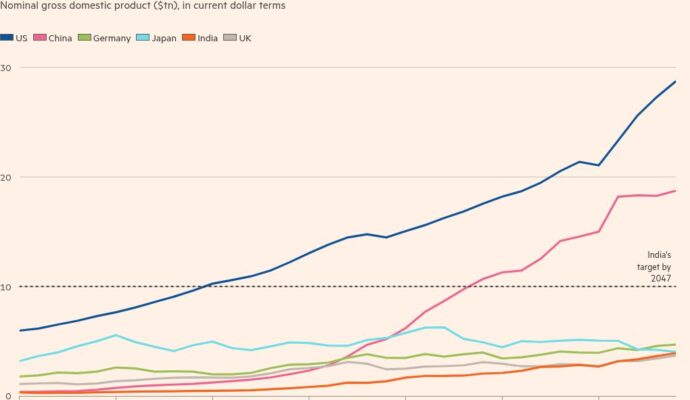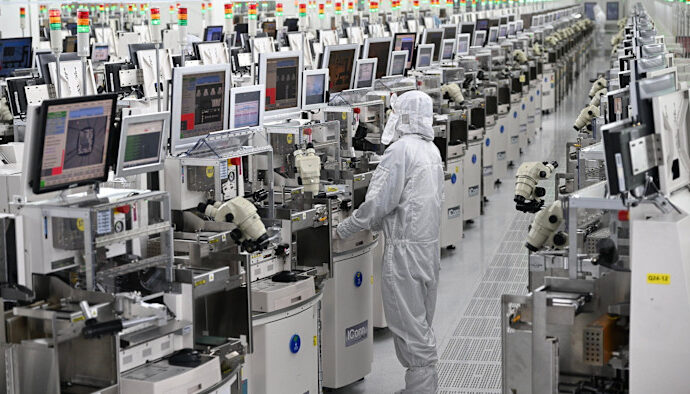Unlock the Editor’s Digest for free
Roula Khalaf, Editor of the FT, selects her favourite stories in this weekly newsletter.
Shares in South Korea’s top chipmakers fell on Monday after Washington revoked waivers that had allowed them to send US manufacturing equipment to their facilities in China without a licence.
SK Hynix shares declined almost 5 per cent, while Samsung Electronics shares shed more than 2 per cent after the US government said it was removing the companies’ “validated end user” status.
Former president Joe Biden had allowed the world’s two largest producers of memory chips to send US chipmaking tools to their Chinese plants without having to apply for a licence for each transfer, amid concerns that hobbling the South Korean companies’ operations would benefit Chinese rivals.
The commerce department on Friday said it had closed the “Biden-era loophole” and that companies would now need to obtain licences to export US equipment to chip factories, known as “fabs”, in China.
The department added that it “intends to grant export license applications to allow former VEU participants to operate their existing fabs in China” but “does not intend to grant licenses to expand capacity or upgrade technology at fabs in China”.
The operations affected include Samsung’s plant in the city of Xi’an, which accounts for about 30 per cent of its Nand flash memory production, according to analysts at Bernstein.
SK Hynix’s plant in the city of Wuxi accounts for 35 per cent of its total Dram output, while its facility in Dalian — recently acquired from ailing US chip giant Intel — accounts for 37 per cent of Nand production.
CW Chung, joint head of Asia-Pacific equity research at Nomura, said Samsung and SK Hynix “had continued to upgrade their Chinese facilities, hoping that the US waiver would be kept in place”.
While the “short-term impact on their production in China is limited” from the waiver revocation, the South Korean chipmakers “will have to think hard now whether to continue their operations there”, said Chung.
Kim Yang-paeng, a researcher at the Korea Institute for Industrial Economics and Trade, said preventing the companies from upgrading their Chinese plants would increase the technological gap between the less sophisticated “legacy” chips they produce in China and the advanced memory chips they produce in South Korea.
But the “strong demand for legacy memory chips” will allow them to maintain profitability at their Chinese operations for the time being, said Kim.
Stacy Rasgon, a senior analyst at Bernstein, said US authorities were likely to continue granting licences to South Korean companies to maintain their Chinese fabs’ existing capabilities because “suddenly removing them from the global market would create shortages and price surges”.
South Korean chipmakers operating in China are also coming under intensifying pressure from Chinese rival CXMT, which increased its share of the $90bn global Dram memory market from close to zero in 2020 to 5 per cent last year, according to Shenzhen-based consultancy Qianzhan, and is aggressively expanding production.
SK Hynix said it would “maintain close communication with both the South Korean and US governments and take necessary measures to minimise the impact on our business”. Samsung declined to comment.


